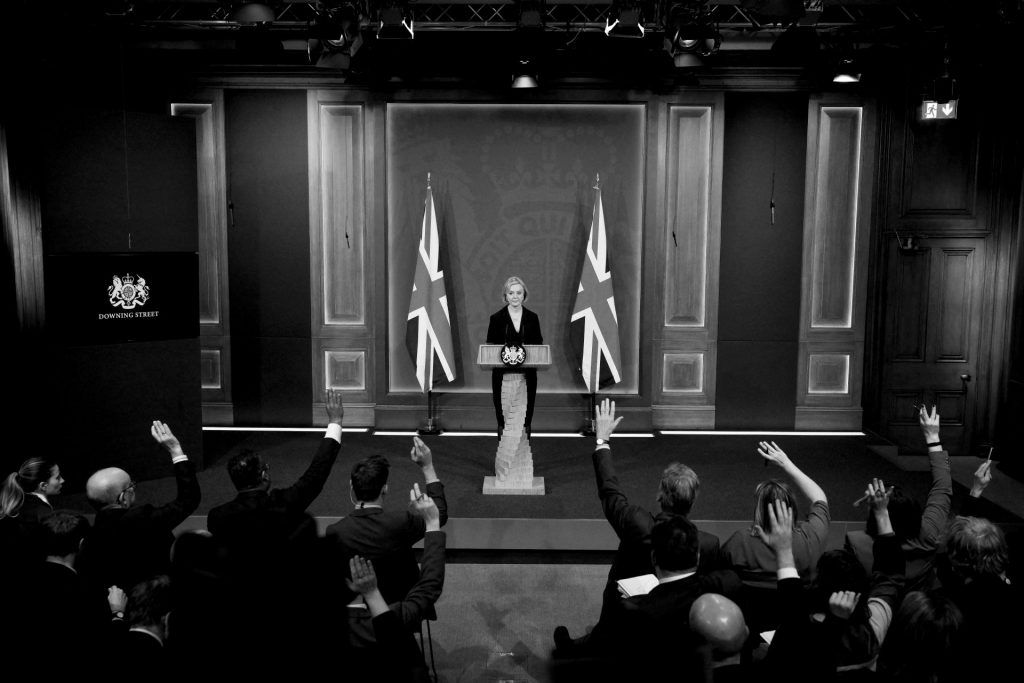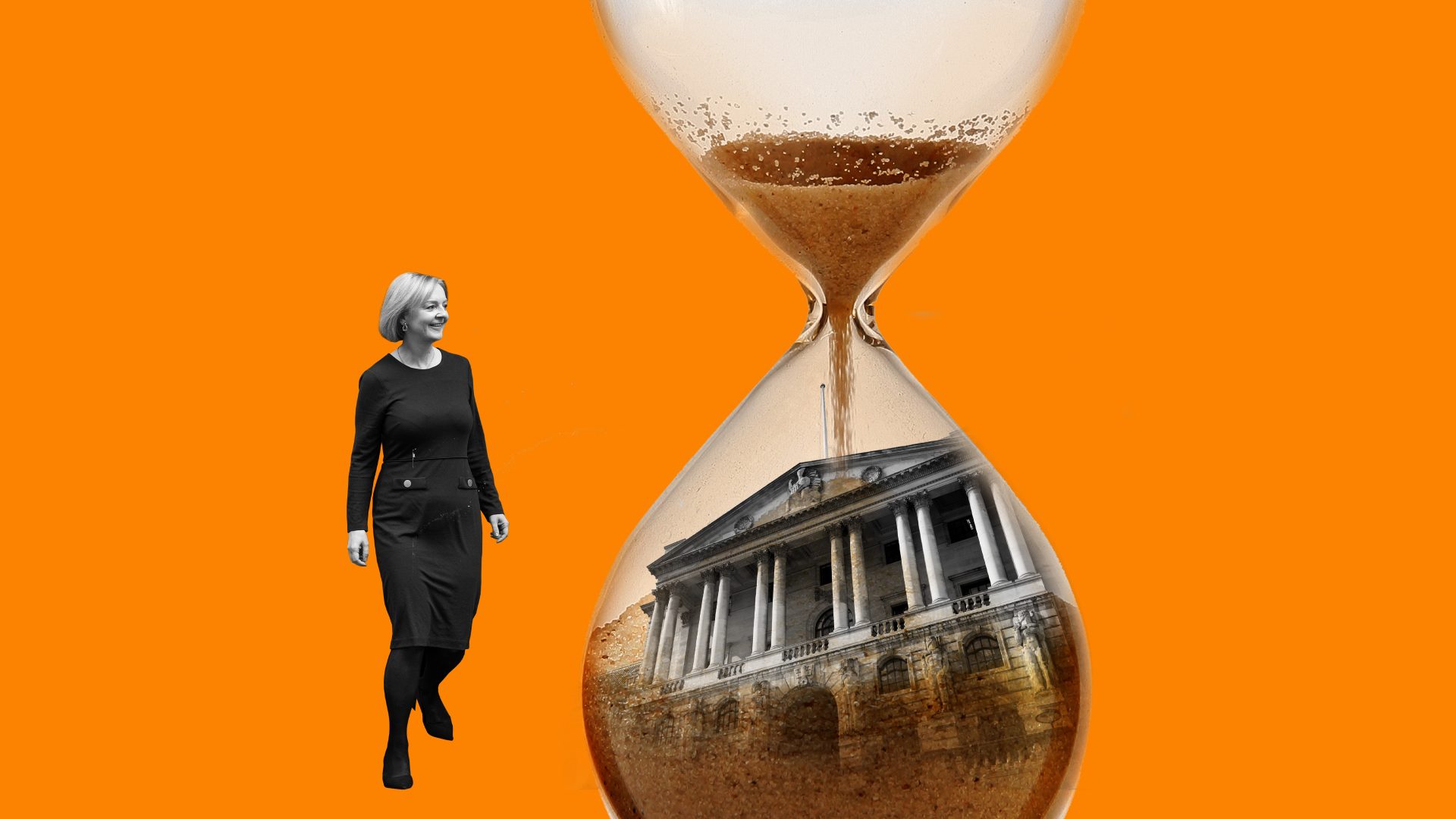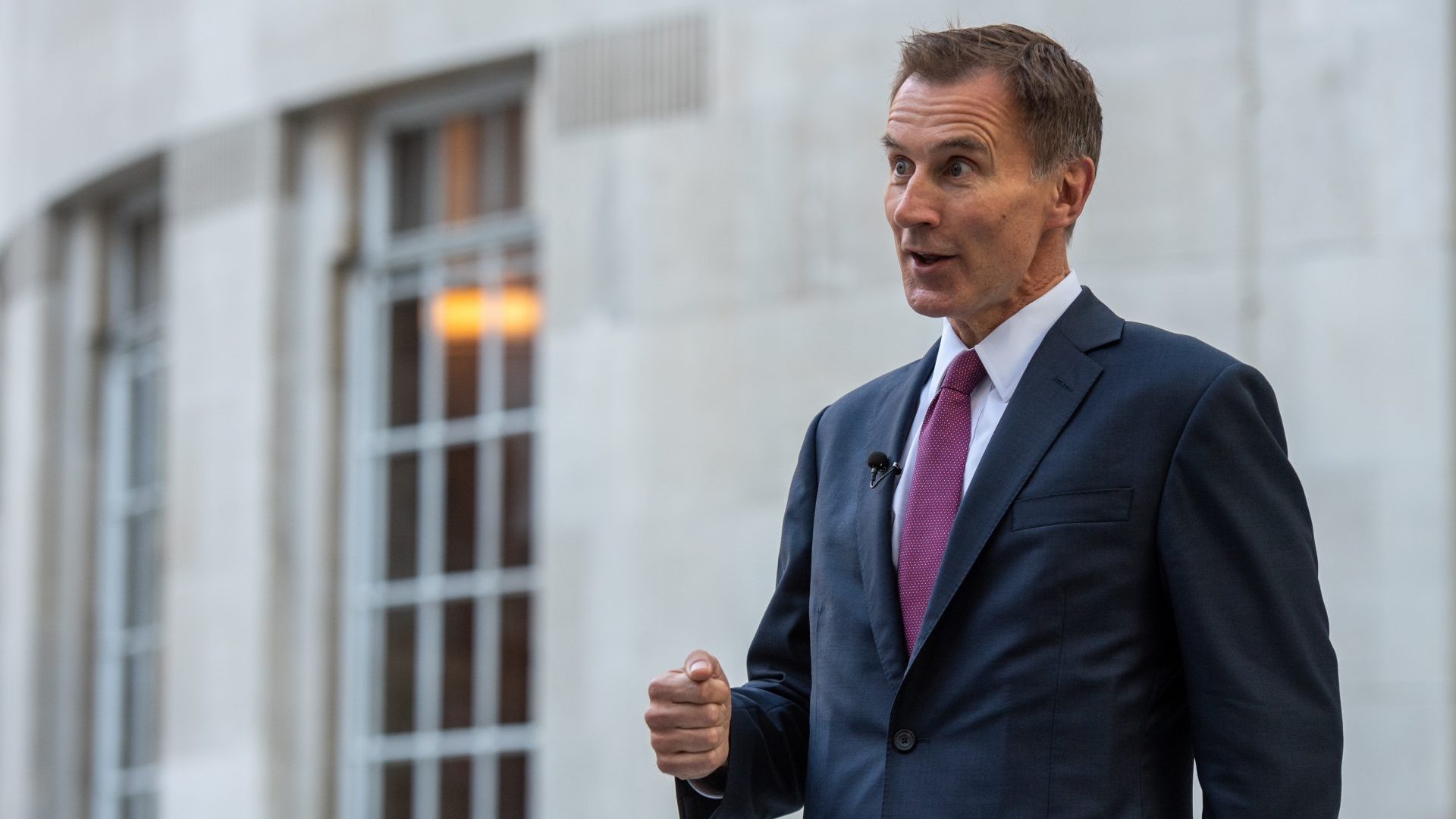Liz Truss seemed to believe that she had discovered the holy grail as she trumpeted her conviction that the solution to the UK’s problems was “growth, growth, growth”. Her short-lived now ex-chancellor, Kwasi Kwarteng, was equally convinced. Together, they had found buried treasure, the key to improving the lot of everyone in the country. Some might suffer momentary pain but soon the UK would be basking in the sunlit pastures of national prosperity and thanking the Blessed Liz.
Well, the pain was instant and so severe that even Truss has had to accept that her “policies” and not just her chancellor had to be ditched. Borrowing to fund tax cuts, part tax cuts for the rich, simply does not make economic sense. Jeremy Hunt has brought a voice of sanity back to government.
(But she) Truss had not been visited with a unique revelation. A growing economy can, and should, benefit everyone and successive governments have been well aware of that. What they have struggled to do is deliver it.
Hunt has moved quickly to quash the moves that would have ensured the rapid shrinking of the economy: tax cuts that shattered the confidence of the international financial markets. That was the essential precursor to any pursuit of the growth that the country so desperately needs. But it is not achieved by simply setting it as an aim, even if that aim is repeated in triplicate.
In the early 1970s, Edward Heath and his chancellor, Anthony Barber, were even more ambitious than Truss, setting a growth target of 5%, double Truss’s aim of 2.5%. Their “dash for growth” ended very badly as the so-called Barber Boom turned quickly to bust. More recently, George Osborne acknowledged that “the only way to sustainably raise the living standards of our nation” was to grow the economy.
The UK’s productivity gap is a problem that has confounded both government and thinktanks. Ways of measuring it have changed but it still remains stubbornly high in the UK. According to the Office for National Statistics, the United States is between 18% and 28% more productive than the UK. If anyone thought that Brexit would improve that situation, they should first have explained why France and Germany manage to be significantly more productive than the UK.
In 2015, George Osborne, having decided that raising productivity was “the challenge of our lifetime”, came up with remedies which have now been played out again in the disastrous “mini” budget. He cut corporation tax and raised the investment allowance. It didn’t work then, so it was difficult to see why it would work for Kwarteng. Businesses had already factored in the tax hike that Rishi Sunak had promised back when he was chancellor, the same hike that Kwarteng planned to undo. But businesses weren’t clamouring for it to be abandoned. Having sacked Kwarteng, Truss was forced into reversing the tax cut.
Truss has come up with the idea of “investment zones”, havens where enterprise can flourish, relatively free of regulation and tax. Osborne gave us “enterprise zones” and Johnson liked “freeports” but neither proved a great success.
Successive administrations – although that term hardly seems appropriate for the shambles currently in No 10 – have acknowledged that improving the performance of UK business requires a better-skilled workforce and much improved infrastructure. It requires businesses to be prepared to invest in technology. And for that to produce economic results takes time.
Tax cuts today will not be rewarded, or paid for, with improved productivity tomorrow. Which is why the markets looked aghast at the mini-budget, why Kwarteng did not want to let the Office for Budget Responsibility near it and why he scrabbled around for something to say about how he would deal with the £60bn hole in public finances that a few days of Trussonomics had created. That problem now confronts his successor, Jeremy Hunt.
So far, most of the negative reaction to Truss’s plans has concerned tax. The “Plan for Growth” document which accompanied Kwarteng and Truss’s disastrous “Fiscal Event” suggested that another problem might be brewing. It stated that: “The financial services sector will be at the heart of the government’s programme for driving growth across the whole economy”. How will this be accomplished? The government promises a “deregulatory package” that will “unleash the potential of the UK financial services sector”.
It doesn’t take a very long memory to recall the financial crash of 2008, in which “light touch regulation” played a central part. We are all still paying the price for that crisis. But the former governor of the Bank of England, Mark Carney, was able to provide reassurance in 2015 that a new set of rules had made banks “more resilient to shocks and unlikely to need a taxpayer bailout again in future”.
But the morning after enjoying cocktails with a group of financiers, Kwasi Kwarteng promised to tear up much of that financial regulation and scrap the cap on bankers’ bonuses, so they can really enjoy the proceeds of their labours. Is it foolish to feel nervous about such a plan?
There is already legislation under consideration which has the potential to increase risk in the sector. The Financial Services and Markets Bill includes a new requirement for regulators to pursue an “international competitiveness” agenda. The Finance Innovation Lab think tank fears that this “risks putting regulators in a dangerous race to the bottom with other jurisdictions”.

The Treasury’s own analysis of the regulatory failure that led to the 2008 crash concludes that one of the contributory factors was “excessive concern for competitiveness”. But, of course, the first thing Liz Truss did on becoming prime minister was to sack the permanent secretary at the Treasury, Tom Scholar. It is to be hoped that Hunt is as strict in his views on the financial services sector as he is about shelling out cash indiscriminately to deal with energy prices.
The Bank of England had to resort to quantitative easing to keep things afloat in 2008. Printing money, by any other name, brings its own hazards and inflation is one of them. The Bank embarked on QE with no clear plan as to how to unwind it but had just begun to experiment with a bit of QT (quantitative tightening), offloading some of the bonds it had bought with that newly printed money. Thanks to the financial fiasco, it is now back in QE mode and, despite having promised to end the programme, the Bank may have little choice but to continue to step in and buy the unwanted credit.
Far from delivering on growth, the Truss government has effectively ensured that the UK’s productivity gap will get worse. For what business needs beyond improved education and skills and infrastructure that really works is confidence in the long-term future of the country. That took a hit in the Johnson years when his infamous “Fuck business” remark. Leaving the European Union was another strong negative for many international companies, which had favoured the UK as a bridgehead into the EU. But now, business confidence in the UK is totally shattered.
A business secretary who drips contempt for any who question the policies or actions of the government does not help but, even if Jacob Rees-Mogg gave the impression of understanding why business might have concerns, he shares Truss’s ideology. Their refusal to listen to differing opinions explains why they are blithely pressing ahead with the Northern Ireland Protocol Bill, legislation that amounts to a breach of international law. This is not a move that will help build confidence in the UK. It is the sort of action the UK might be expected to condemn if it were taken by any other country.
Is it any wonder, then, that investment is flowing out of the UK? A country once seen as relatively stable and with an administrative system that worked has now demonstrated itself to be completely the opposite. A chancellor being sacked after just weeks in office does not make the government look any more stable. That will not encourage companies to invest for the long term. The chances of improving productivity slip further away.
And, despite her promise that public spending would not be cut, it is impossible to imagine how this promise can be fulfilled. Against a background of war in Ukraine and the resulting energy crisis, the rest of Europe is suffering. But Truss and Co have given the UK problems all of our own.
Even a rampant financial services sector could not generate the increased revenue the country needs to plug the gap they have created in the country’s finances. Even if every item in the mini-budget were to be abandoned, the damage has been done.
Confidence in the UK has been shattered. The country will be poorer, meaning there will, inevitably, be less money to spend on education and infrastructure. Yet our education system lets down too many young people. While the best schools are brilliant, we rank only at number 15 in the OECD league table for education, behind China, Korea and Japan but also Estonia and the Netherlands. The resulting deficit in our labour force needs to be bridged by immigration but Priti Patel and now Suella Braverman do not exactly wave a welcome banner.
The road and rail projects that might help get productivity moving will be beyond the country’s resources. Faced with a toss-up between building a railway or keeping the NHS afloat, no government could risk choosing the former. Far from finding the holy grail, Truss has succeeded in burying it so deep it may not be unearthed for decades.
Patience Wheatcroft is a former editor of the Wall Street Journal Europe and is an unaffiliated member of the Lords.




